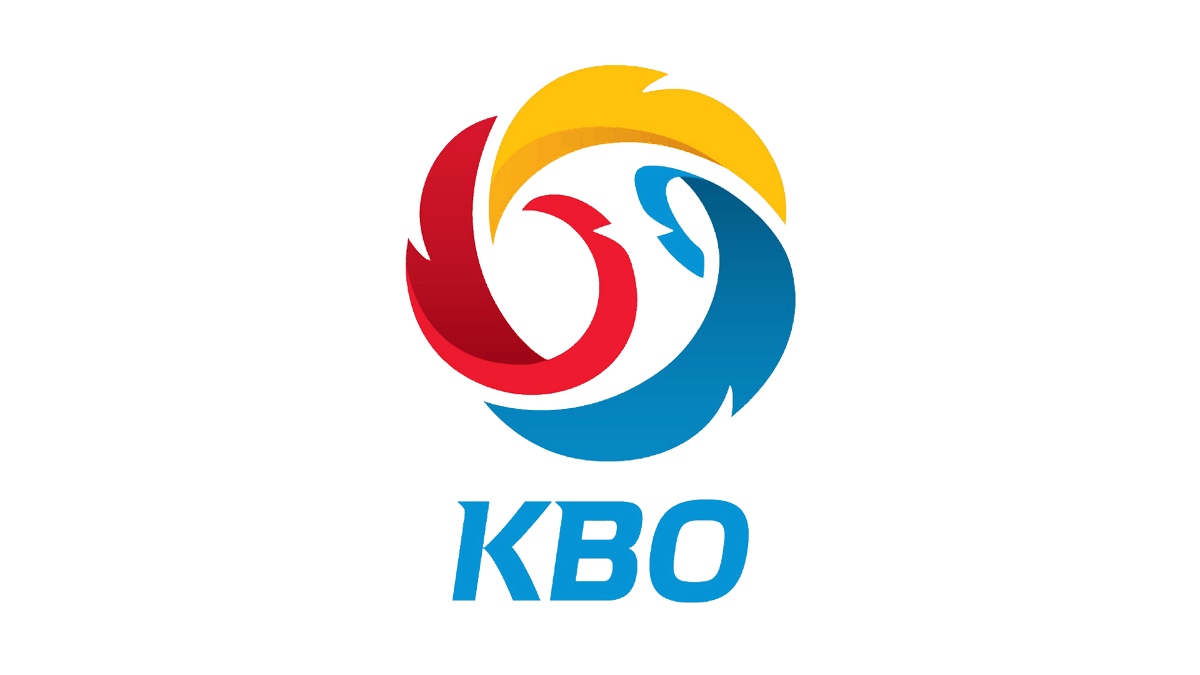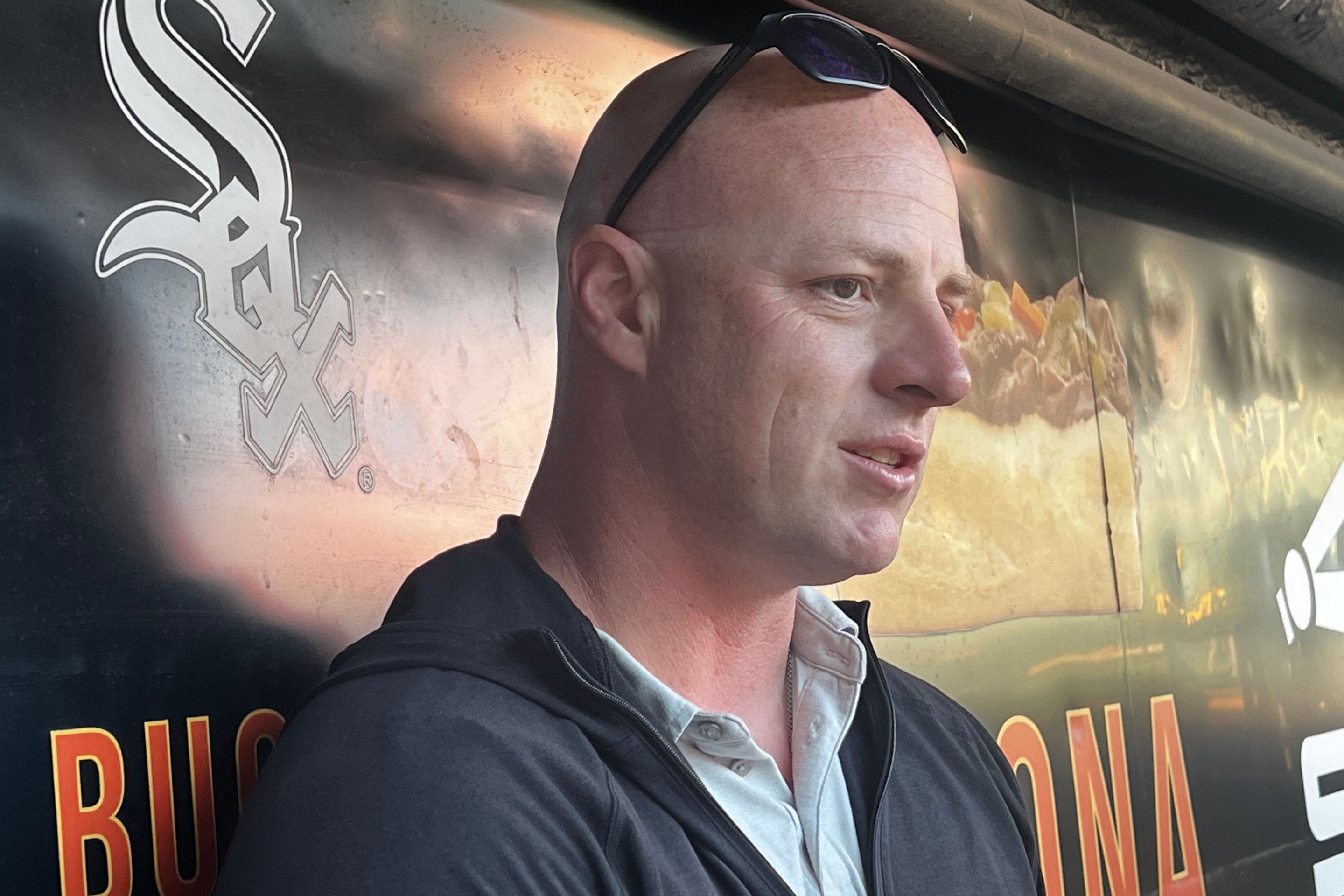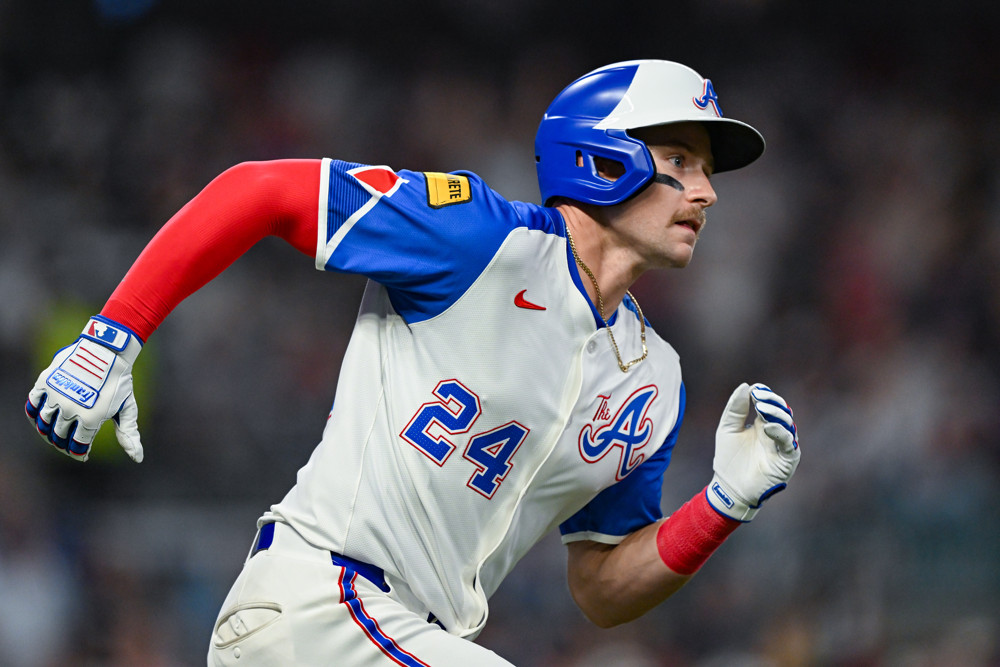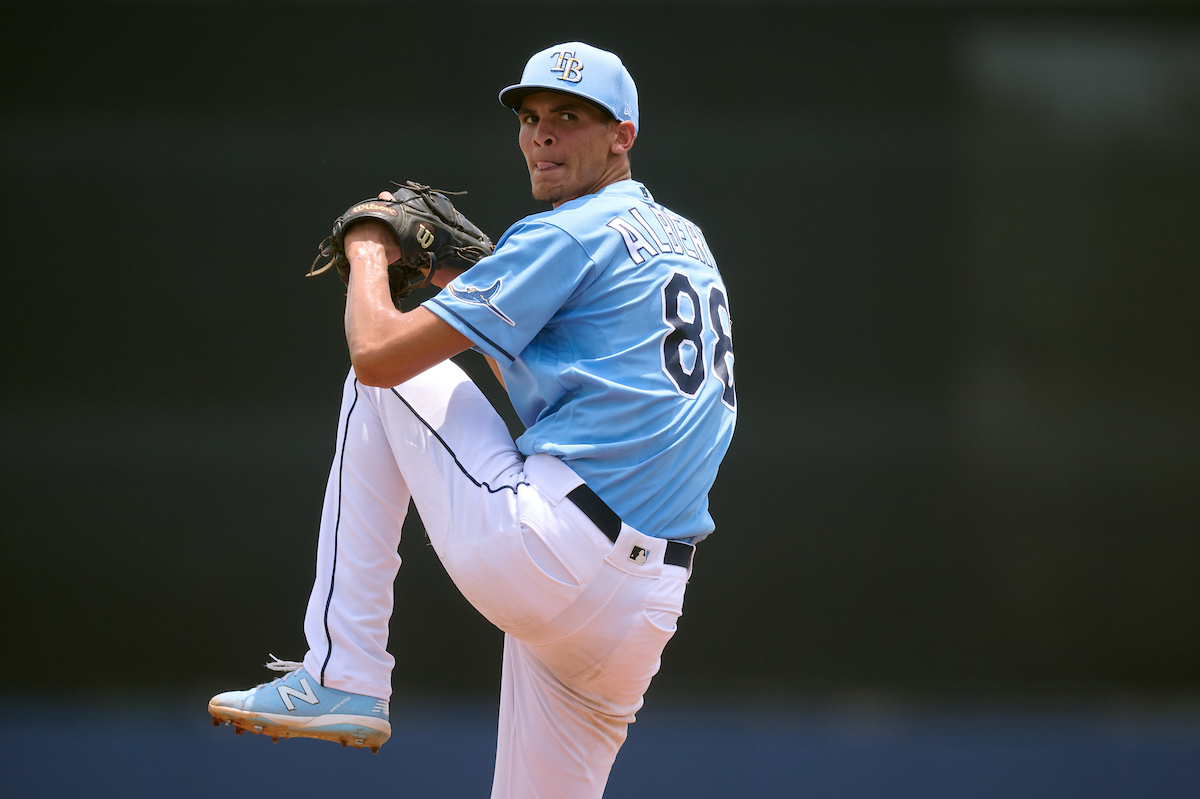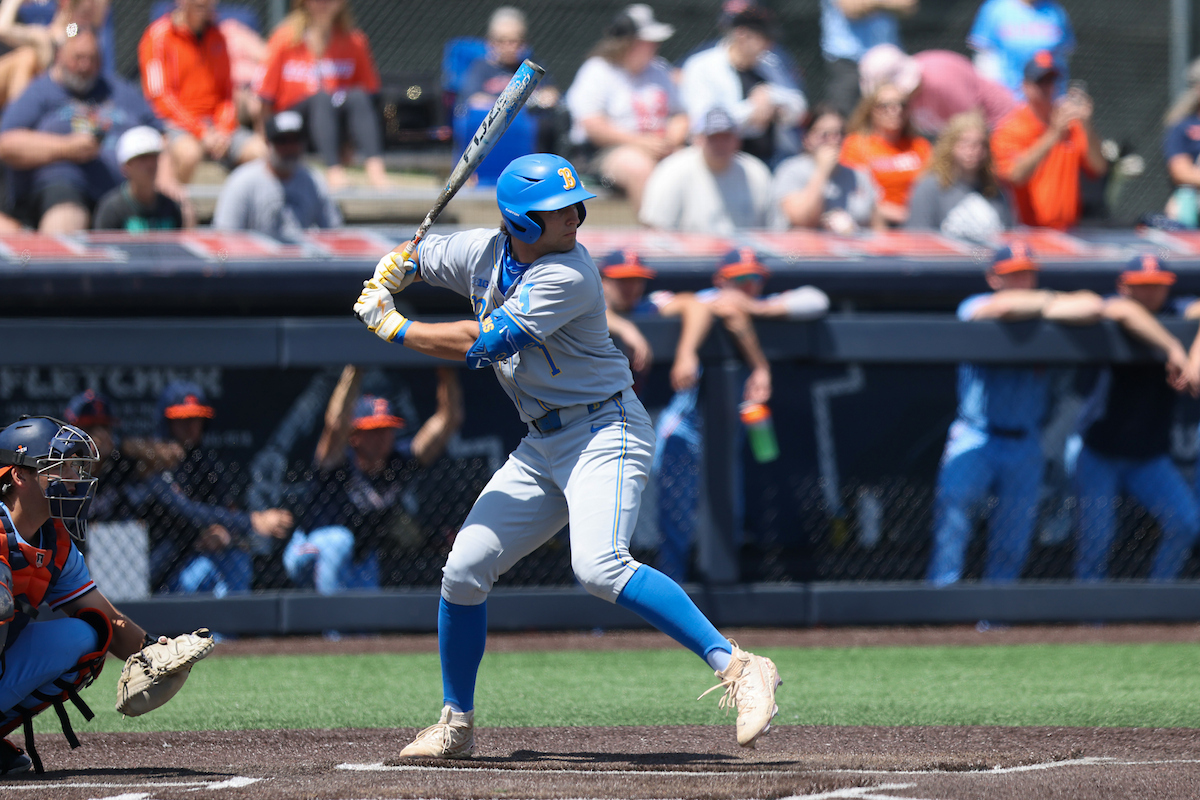The arrival of the Korean Baseball Organization's Opening Day doesn't quite represent the return of baseball in 2020, because the Chinese Professional Baseball League in Taiwan has been up and running for a couple weeks.
But the return of the KBO does represent something closer to normal for Major League Baseball fans. Thanks to an eleventh-hour deal because executives in Bristol realized that money is usually necessary to receive goods and services, ESPN carried the season-opening game between the NC Dinos and Samsung Lions in Daegu.
I fixed myself a highball and watched the entirety of the broadcast, which started at 12:33 a.m. CDT after a brief rain delay and wrapped up around 3:20 a.m., with the Dinos winning 4-0. The familiar network supplied familiar voices (Karl Ravech, Eduardo Perez), and the league supplied a couple familiar names and faces (a bemulleted Tyler Saladino, Jerry Sands on a 2019 leaderboard).
It also gave a sense of what Major League Baseball might feel like if it can come back this season, or even next season. The lack of fans wasn't especially noticeable from the center field camera or batted balls up the middle. The ambient noise pumped in through the stadium helped stave off the end-of-days vibe that cast such a pall over the fanless White Sox-Orioles game in Baltimore back in 2015. Here's a standard pitch angle that suggests nothing is awry...

... and the masks on the umpires are the only thing signaling something different about this particular home run review.
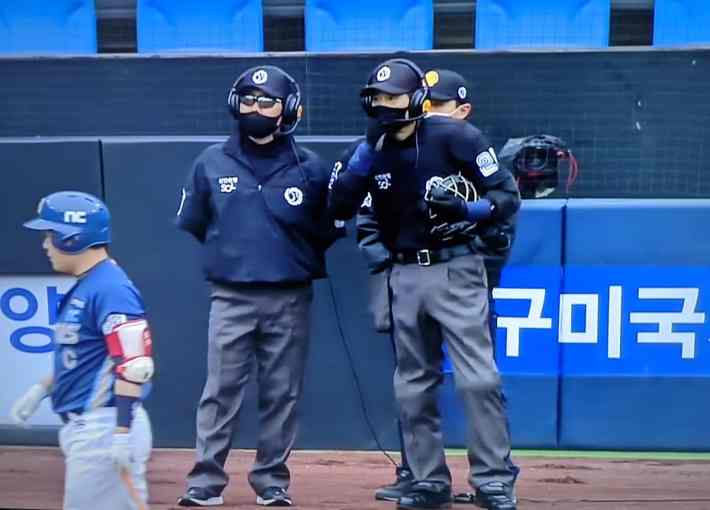
The stilted nature of the broadcast better reflected the compromises in the arrangement. Ravech and Perez, broadcasting from their own homes and watching what everybody else could see on the broadcast, had to give each other wide berths when starting and stopping sentences, lest they talk over each other. They lost the visuals entirely at one point, and while Jeff Passan had success joining the broadcast as the third man, Korean baseball reporter Daniel Kim couldn't be heard in his initial attempt to get involved. (He eventually conquered the issues and found his groove.)
I can imagine Jason Benetti and Steve Stone having a similar adjustment period if they have to broadcast remotely and separately, which would pose a challenge to their particular one-upping style of repartee. They're pros, though, so they could probably make it work for as long as necessary.
I still have a hard time imagining baseball returning smoothly, although Trevor Plouffe circulated the latest batch of specifics that nobody else was ready to verify...
It makes sense for South Korea to resume baseball, because their daily new COVID-19 case count has been in the single digits. Taiwan has strung together multiple days with no new cases, so the CPBL is preparing to allow a small number of fans into stadiums.
The United States, conversely, is still staring down tens of thousands of new cases a day, and the federal response has been negligent at best. Congress can't even get tested with regularity, so it's harder to imagine there being enough resources to keep a league humming. There needs to be a plan and some lead time in order to hit the ground running whenever hitting and running is allowed, but I'm wondering if the presence of baseball in more responsive countries might encourage the kind of impatience to return to normal before normal exists.
If you can ride with the KBO for a while, some resources:
*ESPN compiled a preview with power rankings, capsules and 10 players to watch.
*Baseball America posted a list to 10 MLB prospects to know in the KBO.
*Baseball Prospectus released a preview that also includes details on each team's philosophies and stadiums.
